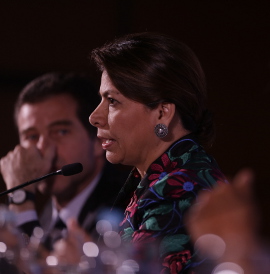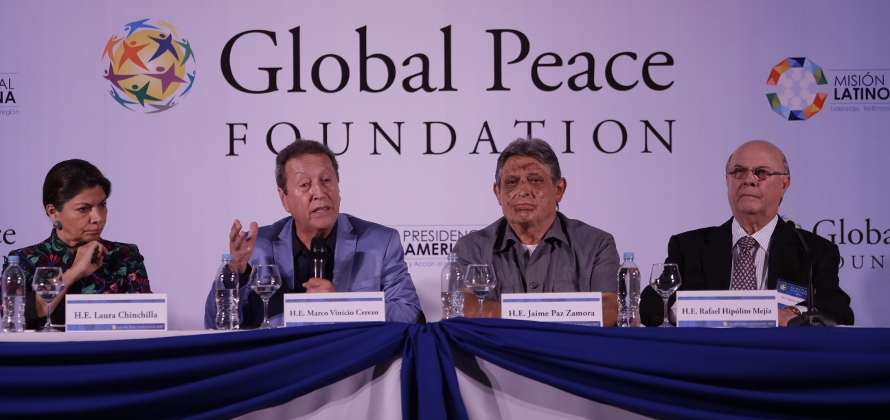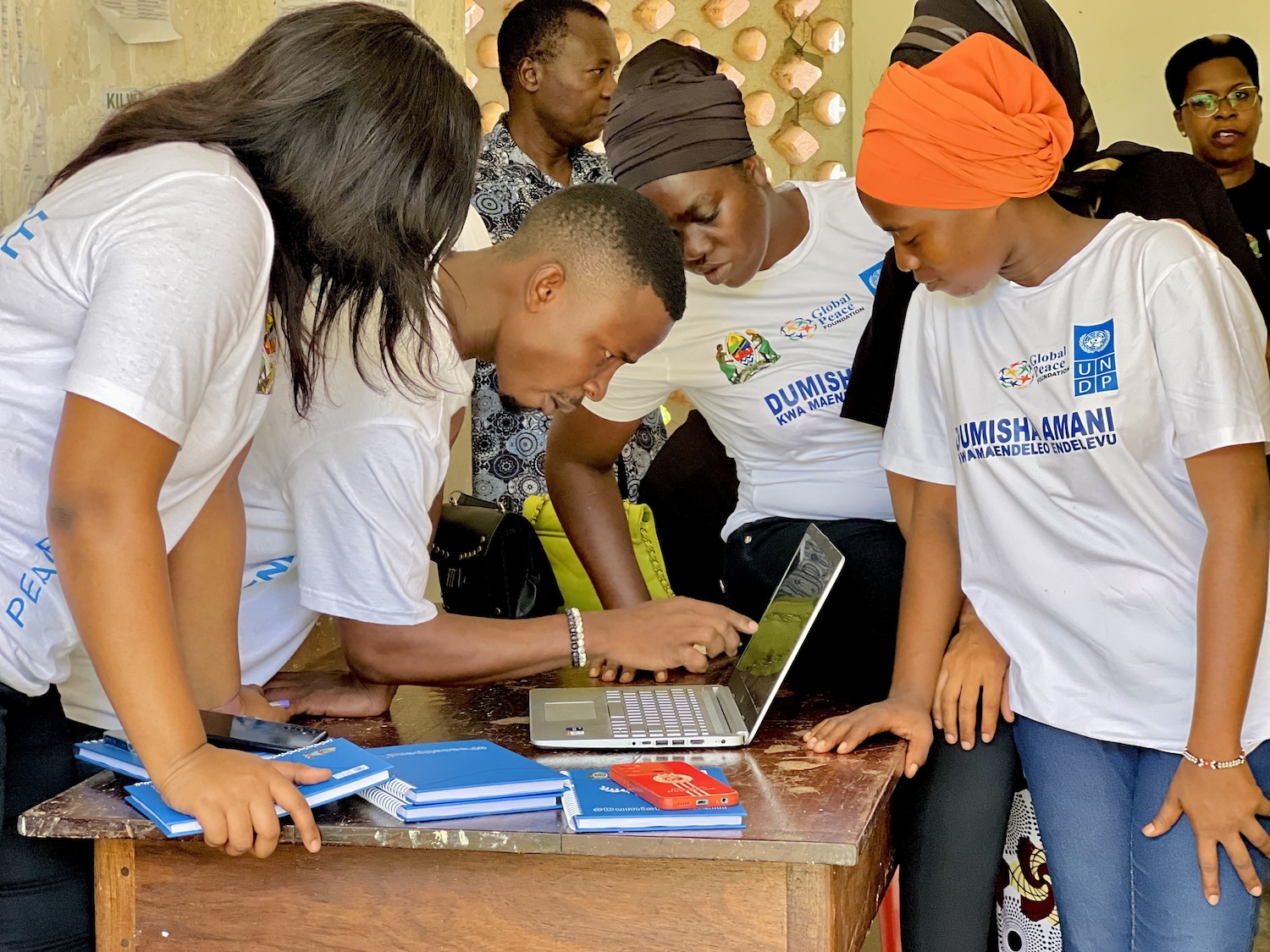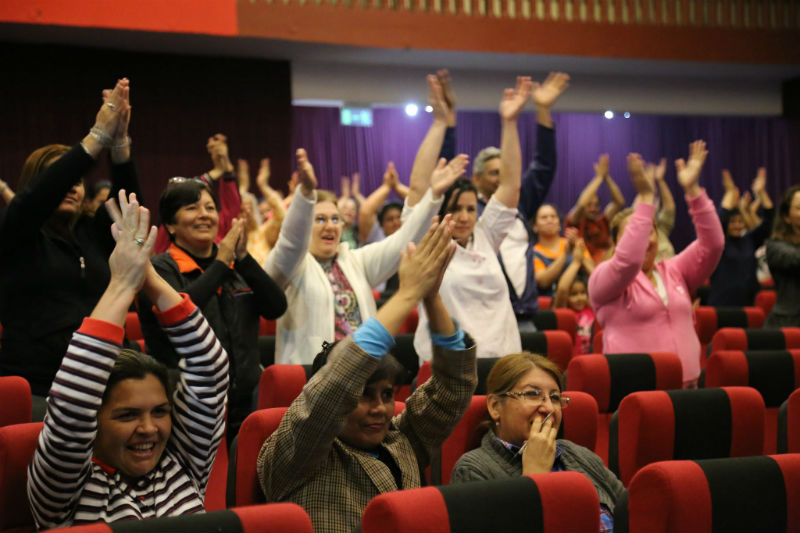“The most difficult task ahead for Latin America is social integration; people have no patience to wait for reform.” said former Costa Rica President Laura Chinchilla, addressing a panel at the Second Summit of the Latin American Presidential Mission in Asuncion, Paraguay on November 21, 2014.

(foreground) H.E. Laura Chinchilla, former president of Costa Rica, (background) Dr. Ernesto Talvi, Director of the Brookings Global Center for the Study of Economic and Social Affairs
Costa Rica’s first female president and the only woman on the panel of former presidents, was addressing the topic of social integration and equal opportunity as part of the 2014 Global Peace Convention.
Ms. Chinchilla noted that there has been significant progress made in the region, where the middle class now represents 35 percent of the population. However, she warned that the new entrants into the middle class, the lower-middle class, are threatened and may slip back to their prior economic state, which could also result in serious disruptions in civil society.
She emphasized the importance of education and providing opportunity for the next generation, but was also cautious that financial investment in education was not enough. The quality of that education must be managed; ensuring that the benefits reach all levels of society was the most important benchmark.
Moderator Dr. Ernesto Talvi, Director of the Brookings Global Center for the Study of Economic and Social Affairs, suggested that the biggest failure for Latin America was the failure to provide work and integrate all sectors of society into the economy, which has resulted in high crime rates.
Former President of Guatemala Vinicio Cerezo emphasized the importance of finding solutions from within, and advocated change in culture and the attitudes that Latin Americans have about the relationship between the State and private enterprise. He said he would like to see a change from a culture of authoritarianism to a more democratic, decentralized system. He said solutions to social problems should be sought emphasizing private initiative, rather than a paternalistic state-centric solutions.

Presidential Panel on social integration and equal opportunity. (left to right) H.E. Laura Chincilla, former president of Costa Rica, H.E. Vinicio Cerezo, former president of Guatemala, H.E. Jaime Paz Zamora, former president of Bolivia, H.E. Hipolito Mejia, Dominican Republic.
However, he also balanced his argument by noting the importance of the state in tempering private interests to ensure that the benefits of economic growth are distributed equally throughout society.
Former President of Bolivia Jaime Paz Zamora expressed optimism about the future of Latin America in the medium-to-long term, and called the Second Latin American Presidential Mission “a historical achievement” involving so many former Latin American presidents in the same discussion. He credited the region’s economic progress and stability and expressed pride that virtually all Latin American countries except for Cuba had adopted a democratic form of government,
Former of the Dominican Republic President Hipolito Mejia also expressed optimism for the region, emphasizing the need to look within for solutions. He also challenged his presidential colleagues to ask themselves, coming out of an era of great social inequality, whether they were effective in providing education and advancing equal opportunity in each of their countries. This, his said, was the task facing the region and its leadership.
The Second Summit of the Latin American Presidential Mission is being held in conjunction with the Sixth Global Peace Convention, Roadmap for National Transformation: Liberty, Prosperity and Integrity through Moral and Innovative Leadership. The Convention concludes on November 21.



